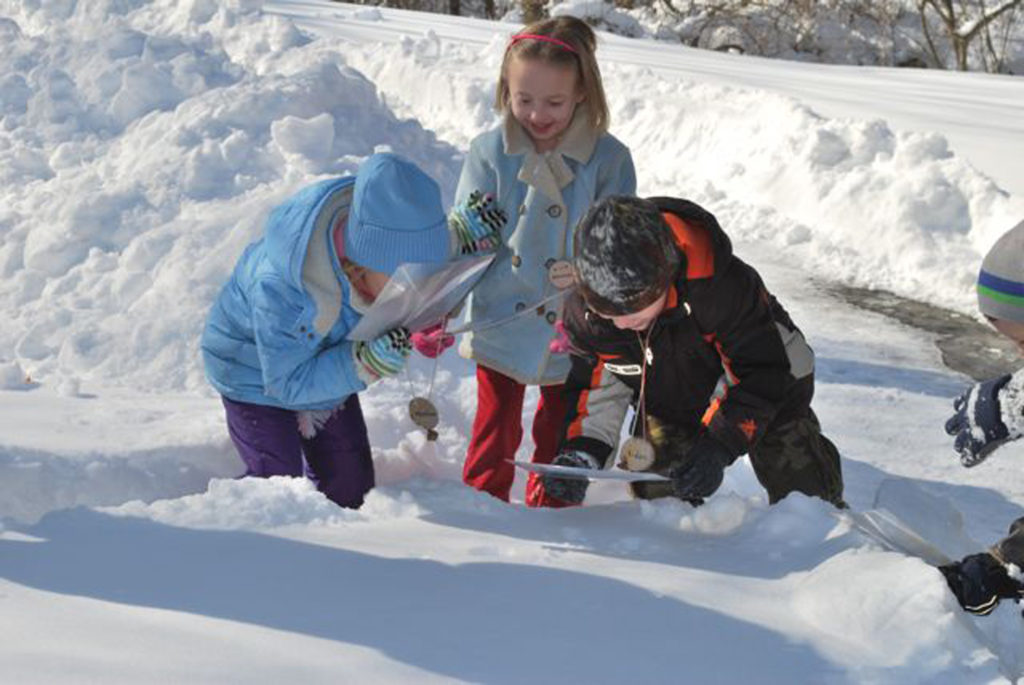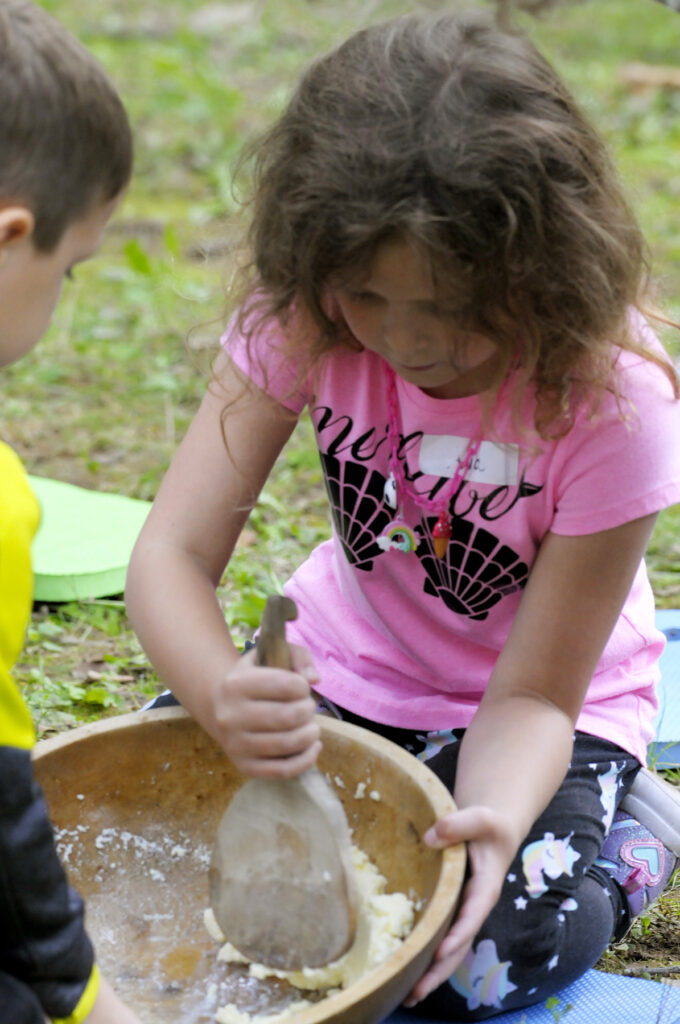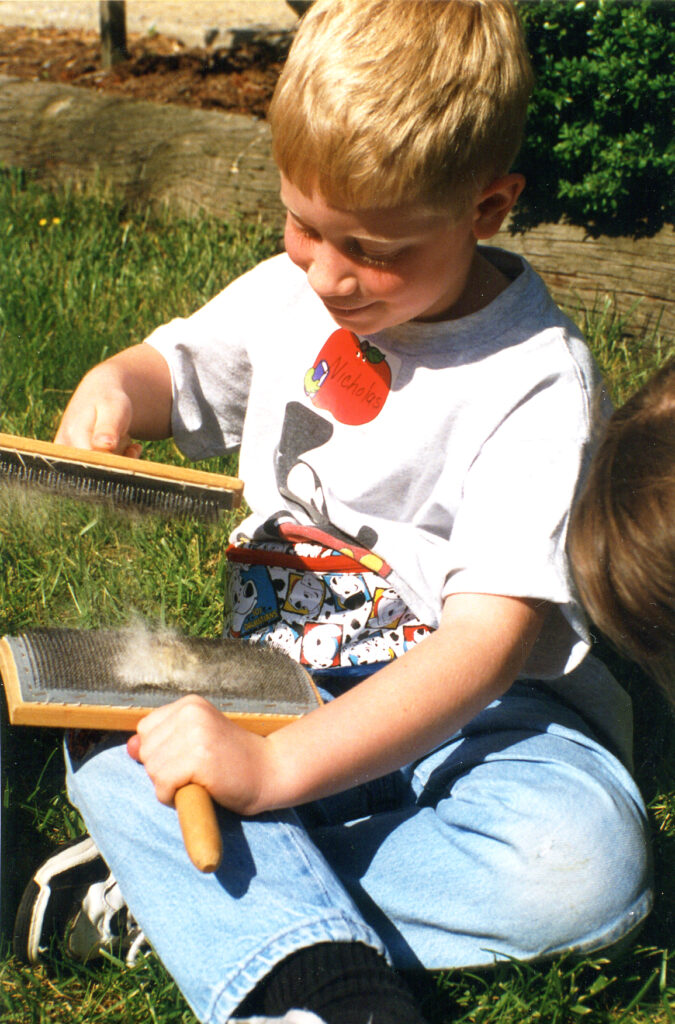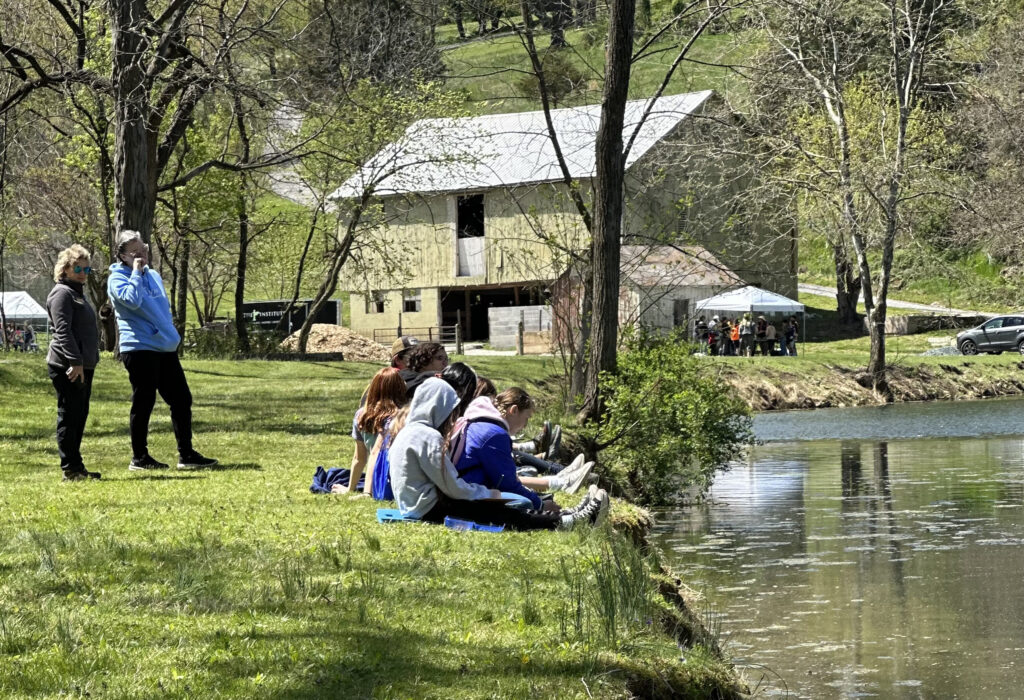Learning about nature and our shared cultural history in a series of curriculum-based programs—the perfect field trip for your class!
Buttonwood’s nature and environmental programs have an emphasis on science and also help develop a love of nature and the outdoors. Our cultural history programs offer students fun and educational ways to learn about our shared historic heritage.
Unless otherwise noted, all programs are two hours long and the cost is $6/student. We can accommodate up to 30 children per program. There is no charge for accompanying adults.
Our professional staff of educators has created a roster of curriculum-based programming set in a variety of natural and historic locations throughout the South Mountain region! These include Pine Hill Recreation Area, Battle of Monterey Pass Museum and Monterey Peak, Happel’s Meadow Wetland, and Michaux Forest.
Meet our Staff!
CLICK HERE to download our faculty and staff biography pages to learn about our professionally trained and qualified educators.
PRESCHOOL
WonderWalks
Preschool children explore the natural world using their senses and special tools provided by the instructor. Dance, storytelling, poetry and music are included.
The instructor uses a finger puppet to add humor and interest. Two seasonal versions of this program are available, Fall and Spring.
75 minutes; $5/student. The minimum base fee is $75 for 15 participants. Maximum 30 students.
KINDERGARTEN
EarthSeekers
This is a year-long program for kindergarten. Buttonwood Nature Center, school, and home are tied together in this full-year curriculum, creating a comprehensive environmental learning experience for kindergarten children. Students visit the nature center three times during the year (Fall, Winter and Spring). They meet the zany puppet character, Mother Nature, and her marvelous Wonder Trunk. Through seasonal activities using the five senses, the students train to become “certified EarthSeekers” learning to find nature’s wonders at local parks, in the school yard and at home. Special tools, letters from Mother Nature and a Wonder Box at school build anticipation for each classroom session. Parents play an important role too, as they complete home-based outdoor activities with their child.
$6 per student, per session. Minimum of 15 students per session, with three sessions scheduled per year. Email us to enquire about student fee.
Kindergarten programs for schools not participating in EarthSeekers
Marvin Visits Planet Earth
A puppet from outer space needs help. Kindergarteners follow the stars to find the four “needs of life” which the puppet, Marvin, must learn. Through hands-on activities children explore living and non-living things and learn the importance of soil, water, air and sunlight. They earn four colored stars which are added to individual student necklaces. Each star represents one of the “needs of life.” The necklaces go home with the students to help them recall the details of their learning adventure.
Hello Earth, It’s Spring! [or Fall]
Kindergarteners hike into the woods to discover signs of Spring or Fall. Along the way they make whiff sundaes, create nature kaleidoscopes, and enjoy several more sensory activities to learn about seasonal changes.
FIRST GRADE
Sydney’s Wonder Web
A spider puppet named Sydney has a problem. She has built a web and in order to make it complete she must find out how the nine parts of nature are interrelated. Students help Sydney by visiting four activity stations where they learn that plants and animals depend upon each other and upon non-living elements of nature for food, shelter, hiding places. Students earn a special necklace which they assemble at the end of the program (and take home) to help them remember the nine parts of nature.
Discover Dairy: From Field to Fridge
In this hands-on program, students learn about dairy foods, modern dairy farms and how dairy products travel from farms to their homes. Students churn cream into butter and make samples to take home. They also discover how butter was made long ago and contrast that process with today’s technology.
SECOND GRADE
Forest Treasures
Students seek out the treasures of the forest through exploration, art, and hands-on activities. They learn about the parts of plants, seed dispersal, simplified photosynthesis, tree ID and why leaves change color. Learners hunt for insects, and look and listen for animals and birds.
The interrelationships between plants and animals is a focus concept.
Plants: From Harvest to Home
Students learn about pollinators and their connection to plants and food production. This program uses hands-on activities to demonstrate basic methods of food preservation such as drying, pickling, and candying. The concept of self-sufficiency is explained as students compare and contrast the technology of the past to that of today. Students gain awareness of their reliance on modern agricultural industry and practices to provide for nutritional needs, and learn of its economic importance in the region.
THIRD GRADE
Wonders of Wool: From Sheep to Clothes
Students explore, through hands-on participation, how wool is made it into cloth. Students wash and card the wool, spin it into yarn and weave the yarn into cloth. They see first-hand how much work is involved in “raising and creating” their own clothes.
The instructors help students compare and contrast the technological changes in the making of cloth over time.
Pine Hill Park Ranger Training
Third grade students embark on an adventure which immerses them in the natural environment of the park. The students are invited to become “park rangers” and pursue their training mission, which includes learning about safety in the outdoors and using their senses to study the world around them. Themes include weather, geology, trees, animals and Leave No Trace principals. The training culminates when the students set up their own “micro parks” to discover nature’s tiniest wonders.
FOURTH GRADE
Fantastic Flax: From Fiber to Fabric
This program is designed around the growing and processing of flax and its historic importance to the farm families of this region. Students process the flax from drying and breaking to scutching, hatcheling, spinning and weaving. By working with flax on a first-hand basis, children are exposed to the concept that the people of the past and present meet the demands of daily life by using natural resources, and that changes in manufacturing technology have changed the way people live, too.
Habitat!
Energy flow, food chains and food webs, animal adaptations, and habitats are the key concepts emphasized in this highly interactive program. The forest habitat will provide the backdrop for these hands-on, minds-on activities. Students will actively learn about the interconnected world around them.
FIFTH GRADE
Monterey Peak Adventures
Fifth grade students will hike to the Monterey Peak observation deck and learn about forest ecology and the geologic features surrounding them.
Civil War: Battle at Monterey Pass
This program will give students an overview of the Civil War as well as the battle that took place at night along the Mason-Dixon Line in July 1863. Students will also tour the museum, see a Civil War-era garden, and experience hands on activities to learn about the everyday lives of the Civil War soldiers.
SIXTH GRADE
Exploring Wetlands: Plants, Animals, and People
Students visit six stations during this all day outdoor program. Hands-on activity stations include: Soil, Plants, Animal Tracks, Animal Pelts, Nature Journaling, and Benefits of Wetlands.
This is a full-day program; student fee is $12.
SEVENTH GRADE
Michaux Forest Discoveries: Land, Stream & Industry
Students visit six hands-on stations during this all-day program at the Old Forge area in the Michaux Forest. Topics include: macroinvertebrate investigation, hydrologic activities, watershed mapping, forest ecology hike on the Appalachian Trail, nature journaling, and discovering the history of the iron industry in the region.
This is a full-day program; student fee is $12.
HIGH SCHOOL
Exploring our Watershed and Stream Ecology
We are offering specially-developed watershed/stream ecology programs for older students.





